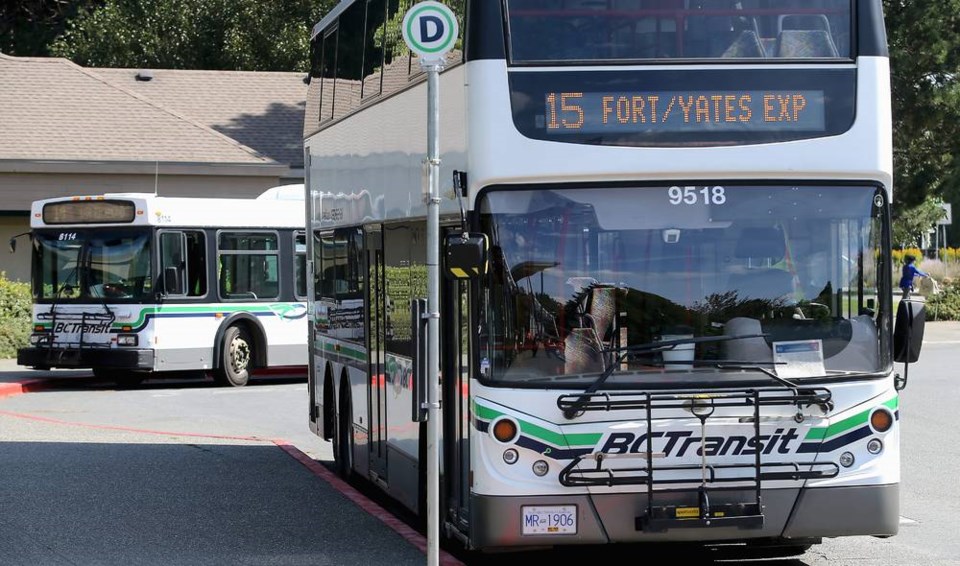Student groups vying for a voting seat on the region’s transit commission plan to keep advocating for improved representation after their motion was defeated at the commission Tuesday.
The societies representing students at the University of Victoria and Camosun College share a non-voting seat on the Victoria Regional Transit Commission. They represent the largest transit stakeholder group in Greater Victoria but have little say in how transit service runs, said Emily Lowan, director of campaigns and community relations at the University of Victoria Students’ Society.
“Students are tired of taking a backseat when it comes to transit,” she said.
The groups put forward a motion to direct the commission’s chair to write to the minister of transportation and infrastructure in support of creating a voting student seat. The motion was defeated in a 6-2 vote.
Instead, the commission passed a motion directing staff to explore options for an educational advisory committee.
Lowan said students will continue advocating at a provincial level and are trying to arrange a meeting with Transportation Minister Rob Fleming. Creating a voting seat requires a change to the province’s Transit Act.
“If we want a transit system that is effective and efficient, we need to meaningfully improve the experience of transit users in decision-making,” Lowan said. “And I think a voting student seat is the most effective way to achieve that in the short term.”
Victoria Mayor Lisa Helps supported the motion, and said she was surprised by the opposition, since a similar motion was passed unanimously in 2017. The commission wrote to the transportation minister at the time, who declined to make the necessary change to allow a student voting seat.
Helps said she thought the commission might have better luck now that Fleming has moved into the role.
“We thought it was a new transportation minister who himself used to be the chair of the UVSS and responsible for implementing the U-Pass [student bus pass program], we thought we might have a shot,” she said.
Students provide a significant, predictable revenue contribution for transit every year through the U-Pass program, Helps said, and that financial stake should come with a vote.
Saanich Mayor Fred Haynes was one of several who expressed concerns about giving a vote to a representative who is not an elected official, because the commission is able to raise taxes.
He voted against the motion, but said he supports improving student representation on the commission in other ways.
Saanich Coun. Susan Brice said it’s important to listen to students’ voices, but “the ability to be able to make decisions around taxation should be left in the hands of elected people.”
Sooke Mayor Maja Tait, who also voted against the motion, said she was reluctant to create a student voting seat when not every local government is at the table. She noted that there was only one West Shore representative until 2016, when a second was added. With two representatives each from Victoria and Saanich, Tait said she had concerns that creating a student vote could skew decisions toward those municipalities and leave others behind.



